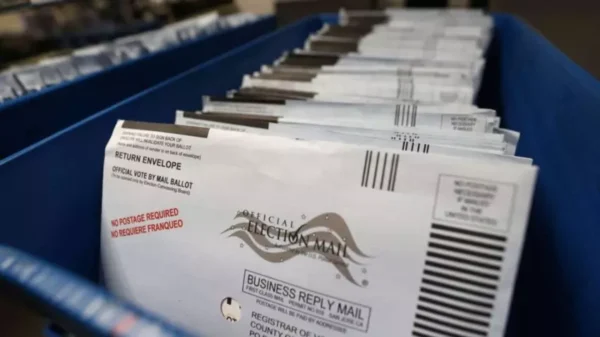California Legislature Says No to Discrimination in Voting
As voter suppression laws are struck down throughout the country, California moves to clarify who can vote with a criminal conviction in the state
SACRAMENTO, Calif. – Today the California State Senate voted to send AB 2466 (Weber, D-San Diego) to the Governor, rolling back a discriminatory voting restriction in California that is a carry over from the Jim Crow era, when states made it harder for black citizens and other minorities to register and vote.
“Courts in the last two weeks are taking action to reverse overtly discriminatory voting laws enacted in North Carolina, Wisconsin, Texas and Kansas,” said AB 2466’s author, Assemblywoman Shirley Weber. “But while national attention is focused on a few states, many fail to realize that in California voters of color have suffered new restrictions on their right to vote in recent years. I wrote AB 2466 because I want to send a message to the nation that California will not stand for discrimination in voting.”
In the wake of actions by state officials over the past 10 years to limit the right to vote for people sentenced for felony convictions, AB 2466 codifies recent court decisions affirming the right to vote for people serving a sentence for a low level felony and settles, once and for all, who can and cannot vote with a criminal conviction in California.
“Many Californians believe that any contact with the criminal justice system means they have lost their right to vote,” said Dorsey Nunn, executive director of Legal Services for Prisoners with Children. “We should inform those with conviction histories as well as the general community the status of the current law, and work to keep as many connected to their communities as possible. Even if a person has a conviction history their family, friends, and community still need him or her to be actively engaged in democracy. We should encourage those willing to re-enter society to fully do so.”
In California alone, three out of every four men in prison are African American, Latino, or Asian American. That means that felony disenfranchisement laws continue to have a much greater impact on voters of color. This disparate impact serves the same basic goal that voter suppression laws created in the post-Civil War Jim Crow era did: to erase the views and electoral wishes of freed slaves and people of color for generations.
“The ongoing confusion about who can vote with a criminal conviction means untold thousands of Californians who are eligible to vote are actually excluded from our democracy instead,” said Assemblywoman Lorena Gonzalez (D- San Diego), who also co-authored the legislation. “AB 2466 guarantees more civic participation, especially in communities of color, and it gives local election officials and the Secretary of State new, important tools to uphold the integrity of the voter file and our elections.”
“The legislature’s vote demonstrates that our elected officials want to be on the right side of history and end this insidious form of voter discrimination,” said Lori Shellenberger, director of the ACLU of California’s Voting Rights Project. “It’s also a vote for public safety. When we allow people to exercise their civic duty to participate in our elections we reduce their chances of re-offending and make our communities safer.”
Stay informed
Sign up to be the first to hear about how to take action.
By completing this form, I agree to receive occasional emails per the terms of the ACLU's privacy statement.
By completing this form, I agree to receive occasional emails per the terms of the ACLU's privacy statement.

